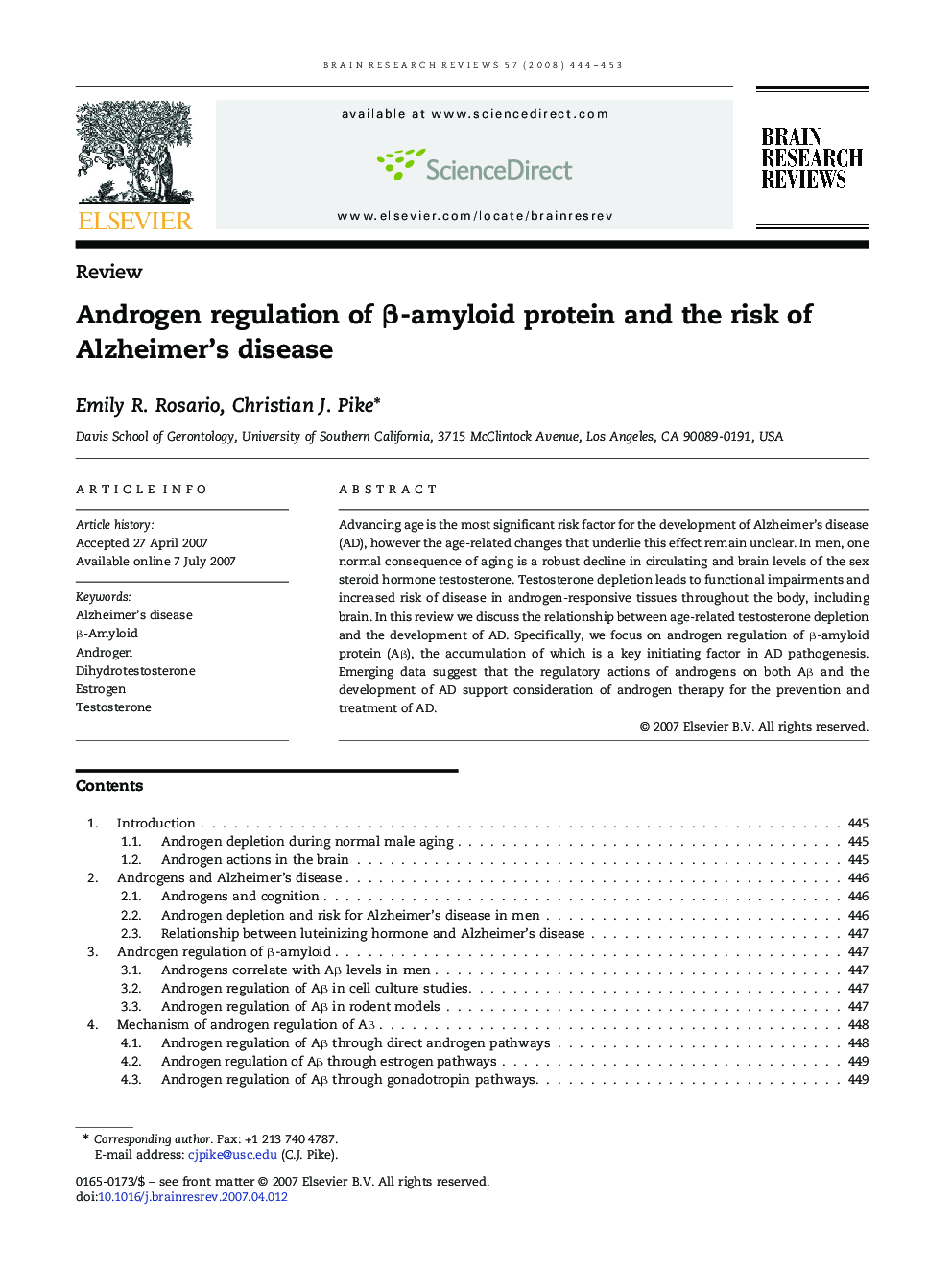| Article ID | Journal | Published Year | Pages | File Type |
|---|---|---|---|---|
| 4333843 | Brain Research Reviews | 2008 | 10 Pages |
Abstract
Advancing age is the most significant risk factor for the development of Alzheimer's disease (AD), however the age-related changes that underlie this effect remain unclear. In men, one normal consequence of aging is a robust decline in circulating and brain levels of the sex steroid hormone testosterone. Testosterone depletion leads to functional impairments and increased risk of disease in androgen-responsive tissues throughout the body, including brain. In this review we discuss the relationship between age-related testosterone depletion and the development of AD. Specifically, we focus on androgen regulation of β-amyloid protein (Aβ), the accumulation of which is a key initiating factor in AD pathogenesis. Emerging data suggest that the regulatory actions of androgens on both Aβ and the development of AD support consideration of androgen therapy for the prevention and treatment of AD.
Related Topics
Life Sciences
Neuroscience
Neuroscience (General)
Authors
Emily R. Rosario, Christian J. Pike,
